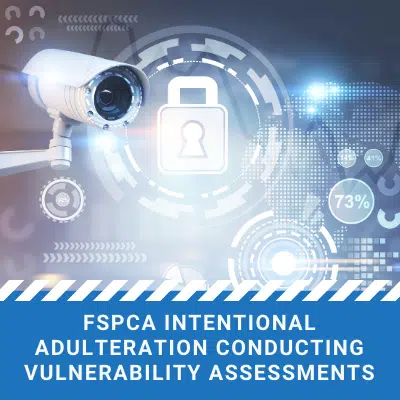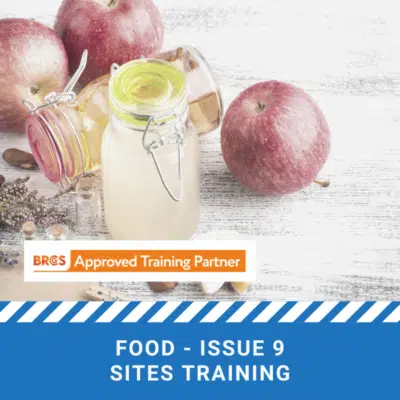
October 2023
Food Compliance Made Easy
Welcome
Hello and welcome to the October 2023 edition newsletter from HACCP Mentor. Another month has passed in a blur with the end of the year spiralling at us way to fast.
September was filled with new experiences and more projects crossed of the ‘To Do’ list. I had the absolute pleasure and honour of visiting Cambodia to undertake an onsite gap audit and advise on compliance risk mitigation.
It was a great opportunity to coach a food safety team on internal auditing techniques along with completing effective risk assessments. If you are interested in taking your business beyond ‘tick the box’ compliance to actual risk identification and management hit reply to let me know.
Another project was handed-over with the completion of the BRCGS START! for sites online training. This training will help sites to understand the requirements to gain certification against the START! Programme. I have a few more projects to knock over before the end of the year so the next few months will be busy.
Keep reading to get our latest free tools to help with your food safety compliance, our upcoming virtual training dates, food fraud cases and compliance news.
If there are any topics you would like us to cover in our newsletter, please don’t hesitate to reach out to us.
Catch you next month!


How to be a Successful HACCP Team Leader

Tips to build a positive workplace culture

Calculating product nutritional information

Upcoming Food Safety Standard 3.2.2A compliance – Australia
Food service, caterer and related retail businesses in Australia need to meet new food safety requirements from December 2023. Standard 3.2.2.A is a national food safety standard and an extension of Standard 3.2.2 requirements. It applies to Australian businesses in food service, catering and retail sectors that handle unpackaged, potentially hazardous food that is ready to eat.
Generally, these include caterers, restaurants, cafes, takeaway shops, pubs, supermarkets and delis, food vans and other facilities serving food. These businesses will implement either two or three food safety management tools, based on their food handling activities. The three tools are food safety supervisor, food handler training and substantiation of critical food safety controls (evidence tool).
Sites can take advantage of FREE training to meet the requirements for ‘food handler training’ using the following tools:
- NSW Food Authority – Food Handler Basics Training
- VIC Health Department – Do Food Safely

Food Fraud Cases Summary
Here are a handful of food fraud cases that caught my eye in the past month.
In the Operation “Paper Wine”, Italian authorities seized 500,000 litres of common wine (total value of 1.5 million Euros) with counterfeit Geographical Indications. [Source]
Spanish authorities seized 28 tons of food (meat products, frozen fish and other items) not suitable for human consumption. Shelf life dates were manipulated and irregularities in traceability were identified. [Source]
There has been an interesting article published on the MDPI website that reviews incidents and potential adverse health effects of serious food fraud cases originated in Asia. This review highlights different cases, including sibutramine in dietary supplements, plasticizer contamination, gutter oil, and milk adulteration, and provides an analysis of incident occurrences, health effects, regulatory frameworks, and mitigation strategies. [Source]
The Punjab Food Authority (PFA) seized in total 6 500 litres of milk adulterated with polluted water, urea, formalin or other illegal ingredients. [Source]

Global Food Recall Statistics
RQA (a company that I audit for) has released their global product recall figures for Q3 2023. They have analysed the trends and produced a summary of the recall insights from the data across food, consumer products & automotive.
The key facts from Q3 are:
- Over 50% of FDA food recalls are classified as ‘Never Events’
- The USDA / FSIS have already reported more recalls in 2023 than in all of 2022
- Dairy products are now the leading category recalled by Canada Food
- US CSPC data shows a significant increase in numbers, the highest since before 2017
- EU Safety Gate (formerly RAPEX) continues to show a dramatic increase in numbers, 2023 projections are in line with a 50% increase compared to 2022.
Upcoming Live Training
We have a few live virtual courses running in October/November that may interest you. Enjoy the benefits of small group training with access to a global food safety compliance specialist.

FSPCA INTENTIONAL ADULTERATION – Conducting Vulnerability Assessments
Wednesday 15th November, 2023
8.30am start (USA, Central Time)

FSPCA Preventive Controls For Human Food Blended Course (Part 2)
Wednesday 25th October, 2023
8.30am start (USA, Central Time)

BRCG Internal Auditor
Wednesday 8th & Thursday 9th November, 2023
8.30am – 5.00pm (AUSTRALIA, Sydney Time)

BRCG Sites Training
Monday 27th & Tuesday 28th November, 2023
8.30am – 5.00pm (AUSTRALIA, Sydney Time)

Emerging food safety risks
The UK Food Standards Agency (FSA) has released a report on a project they implemented to help to identify emerging food safety risks and increase the FSA’s intelligence on the food system during the Covid-19 pandemic.
The Agency performed targeted surveillance sampling of food across England and Wales. The report highlights several risks including:
- 20% out of 300 mince and processed meat products contained meat species not written on the label (although no horsemeat was detected);
- 8 out of 101 lamb products contained beef;
- 4 out of 375 herbs and spices samples had missing ingredients or were substituted with others;
- 3 out of 40 samples of basmati rice contained other rice varieties (from 9 to 29% of the total volume);
- 6 out of 39 dark chocolate samples contained milk proteins.


